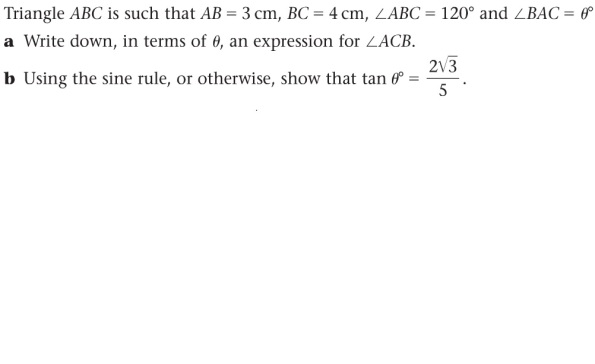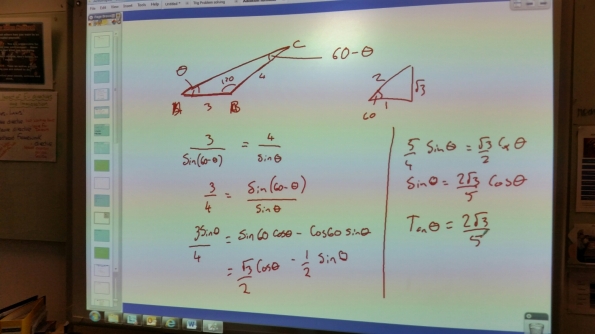Archive
A lovely trigonometry question
This post is cross – published and can be seen on Betterqs here.
I’ve written before about textbooks, they can be troublesome if used incorrectly but they can also provide a good amount of questions to allow students to get their teeth into without having a ridiculously high photocopying budget. A good textbook, in my opinion, is one with great questions covering a range of difficulties to allow stretch and differentiation when used properly.
Currently I have been struggling to find good textbooks for the A level syllabus, I think the majority of the textbooks out there for the current syllabus are a little rubbish and I hope that the ones being produced for the new board are better. (If anyone wants to pay me a load of money I’ll write you a belter….)
The ones we use are produced by our exam board and are one of the better ones out there but are still lacking. The questions tend to be straightforward, testing skills and not understanding and not really differing in difficultly. Imagine my surprise, then, when I came across this little beauty:
It was in an exercise on addition formulae and it really threw a number of my students. I loved the question and in the end we worked through it together on the board:
Once I’d railed at them about the importance of sketching they agreed that would be the best place to start. I made them sketch the triangle on mini whiteboards first to ensure they could then I sketched it in the board. They worked out the angle to be 60 minus theta and came up with the sine rule the selves, and then it was just a case of simplifying with the addition formulae.
This question doesn’t involve any overly taxing mathematics, but it does mix the skill being learned in with prior knowledge and as such serves to enhance the relational understanding of the students. They can see where the links are and they can build those links themselves. I think that this is a superb question and we need to be using questions like this regularly to build that relational understanding, helping our learners become mathematicians, and not just maths exam taking machines.

